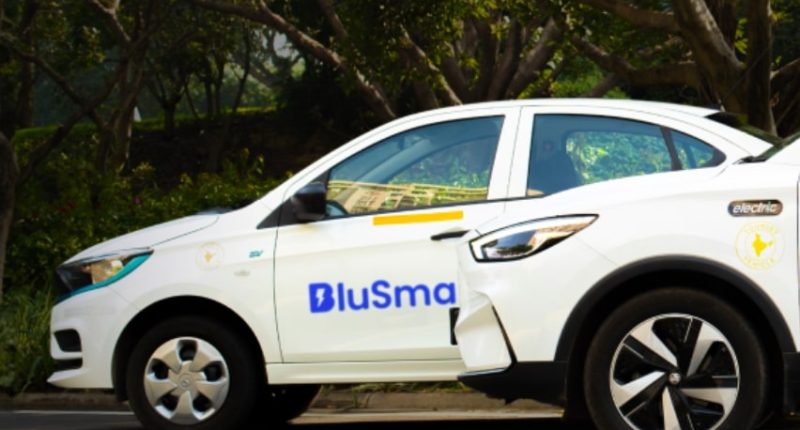Electric cab service provider BluSmart, which has embroiled itself in scrutiny from SEBI over misappropriation of funds, has reportedly suspended ride bookings in several regions of Delhi-NCR, Mumbai, and Bengaluru. According to a report by Moneycontrol, the app is still on the Play Store, but ride booking has been paused, hinting at service suspension. In fact, an advisory from Delhi Airport confirmed that BluSmart’s service has been put on hold temporarily. The move comes in response to financial difficulties and, primarily, a regulatory investigation into its parent company, Gensol Engineering.
Indian markets regulator, the Securities and Exchange Board of India (SEBI), had issued an interim order on April 15, barring Gensol and associated entities from trading in the securities market and temporarily disqualifying the promoters from holding directorial or key managerial roles. In a filing with Indian stock exchanges, the company confirmed that the founding Jaggi brothers resigned from their managerial roles on April 16.
Gensol (which leased electric vehicles to BluSmart) is accused of misusing over ₹200 crore sanctioned for EV procurement. SEBI alleges that BluSmart co-founder Anmol Singh Jaggi redirected around ₹25 crore from Gensol to personal accounts and related entities, including a transfer to Third Unicorn (a startup founded by Ashneer Grover).
Along with this latest legal trouble, the company is also facing financial challenges due to its asset-heavy business model. Unlike competitors like Ola and Uber (which operate on asset-light models relying on driver-owned vehicles), BluSmart owns and operates its fleet of electric vehicles (EVs) and charging infrastructure. This approach clearly requires significant capital investment and has led to increased operational costs.
It is important to note that around two-thirds of BluSmart’s 8,000 EV fleet is leased from Gensol, positioning Gensol as a key supplier and stakeholder. Gensol has recently faced significant financial challenges, including a 68% drop in stock price in early 2025, attributed to delays in servicing debt to BluSmart bondholders and an increase in share pledges to 85.5%.
In terms of finance, BluSmart has raised a total of around $182 million in funding across 11 rounds to date. The last round was raised in May 2024. In the same year, the company was said to be in talks to raise up to $100 million, but ultimately it was unable to secure the funds.
So in response to these challenges, recent reports suggest that BluSmart may be winding down its core ride-hailing business and transitioning into a fleet partner for Uber (so far, its prominent rival in India). Several reports indicated that the shift would begin with the transfer of 700–800 EVs to Uber’s platform, though no official timeline has been disclosed.
Notably, the ride-hailing giant Uber launched its own electric vehicle service – ‘Green’, in 2023. It was initially available in Delhi, Mumbai, and Bengaluru. The service allows passengers to request rides in all-electric vehicles. Uber Green aims to deploy 25,000 electric vehicles (EVs) in India through partnerships with fleet providers like Lithium Urban Technologies, Everest Fleet, and Moove.
Eearlier this year (2025), the company had sold about 37% of its 8,000-vehicle fleet to Refex Green Mobility in a deal valued at ₹315 crore. Importantly, these developments come in the wake of a series of senior leadership exits at BluSmart. In March 2025, Anirudh Arun (CEO), Tushar Garg (Chief Business Officer), and Rishabh Sood (Chief Technology Officer) resigned from their positions.
The Tech Portal is published by Blue Box Media Private Limited. Our investors have no influence over our reporting. Read our full Ownership and Funding Disclosure →






